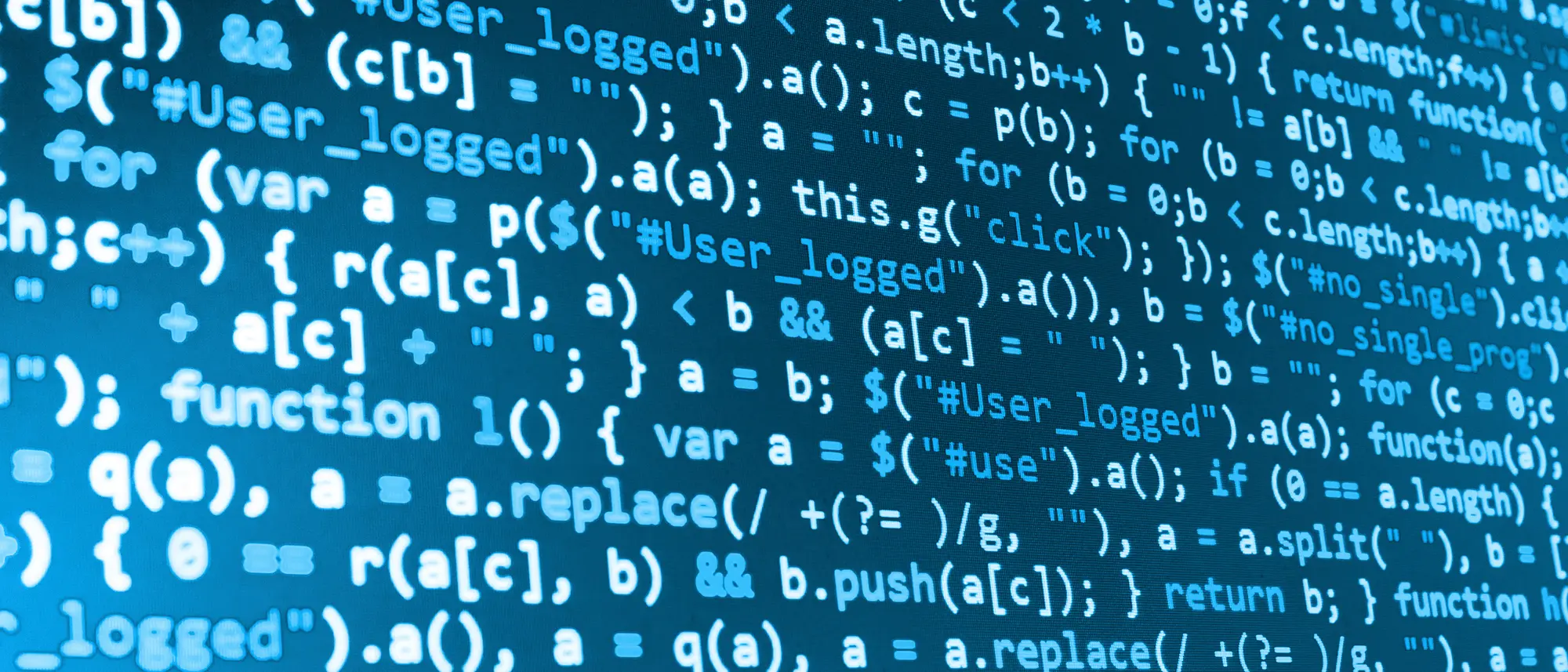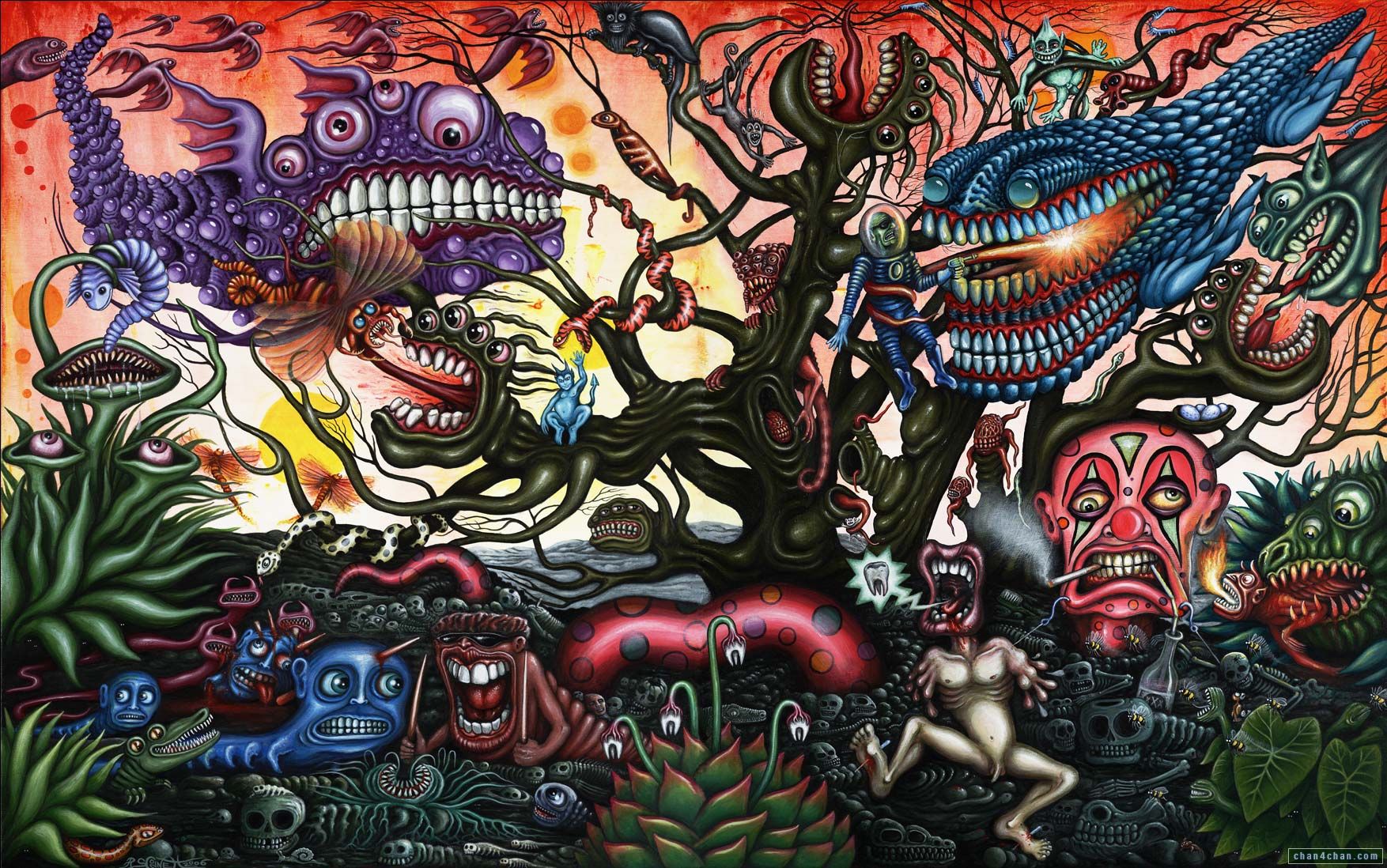The self’s world is a null world, and yet we cannot see this.The one thing the self can never do is see that its world is a non-null world – if it could do this then it would instantly ‘let go of the illusion of itself’,which it never ever does. It’s a condition of being the self that one cannot let go of being the self! The functional inability of the self to let go of itself is what gives it its infinite stability.
The self exists in a state of permanent delusion and its delusion is that its world is not a null world. This is the delusion that it simply can’t see through no matter what it does, no matter how it persistently strives to ‘see the truth’. This is its defining delusion – the delusion of its own potentialities! It’s only because of this delusion that the self can go on seeming to exist to itself – its apparent existence is made up of the potentialities (or possibilities) that it seems to have but doesn’t.
There’s nothing more terrible than this null world which the self inhabits. The self is incapable of appreciating how terrible this world is – the only way it could appreciate this would be if it became aware, if it became conscious, and this is one thing it can never do. ‘The self’ and ‘consciousness’ do not go hand in hand, they do not belong together in the same sentence. To be conscious is to move beyond the self – it is to be ‘not self’ rather than ‘self’. To be the ‘not self’ is to be consciousness. Consciousness is what lies beyond the boundaries of the thinking mind and the boundaries of the thinking mind are what we can never see beyond!
There’s nothing the self can do which would result in it ‘becoming aware’, which would result in it ‘becoming liberated’! The only way could be liberated would be if it were to let go of itself’ and as we have said this is the one thing that it can never do. This is also the one thing it would never want to do – there is clearly no benefit to be had in this! The nature of the self is that it can only ever perform actions that are designed to benefit itself, that are designed to serve itself. ‘Letting go of itself ‘is not such an action, obviously!
When the self does not let go of its self, but instead hangs on tight, with grim determination, to its ‘perceived possibilities’, then it is free to inhabit the null world which is its own unacknowledged projection. The null world – as we have said – exists because of the self’s inability to recognise the nullity for what it is. Or as we could also say, the null world exists because of the self’s inability see itself for what it is.
The self sees itself as existing in a world that contains genuine possibilities – it could not exist otherwise. As we have said. It is driven in everything it does by the motivation to avail of these ‘possibilities’. This is of course the same as saying as we just have that the self is driven by the motivation to benefit itself or advance itself. The self sees advantages where there are none however, and thus its ‘fundamental motivation’ is always directed towards delusion…
Because the cell sees possibilities where they are none,advantages where there are none, this necessarily results in a type of ‘rebound effect’. The ‘rebound effect’ is how falsely imagine possibilities get compensated for so that the books may remain balanced. If the advantage we are striving for is false imagined then trying to avail of it can only ever rebound on us, after all! The compensation for seeing possibilities or advantages where there are none is the opposite of this therefore – it is in the seeing of disadvantages where there are also none.
The null world which the self inhabits is null by virtue of the fact that it is always perfectly compensated. A null world is a world in which all actions, all changes or developments, are at all times perfectly compensated. The self exists in other words in a perfectly compensated situation and this can be seen in how it is motivated – either by the desire to achieve illusory advantages, or by the fear of equally illusory disadvantages. Inasmuch as the desire to obtain the advantage is the very same thing as the fear of incurring the disadvantage the two motivations are therefore always going to be perfectly mutually-compensatory.
The self only has one type of motivation and this is ‘fully-compensated motivation’, self-cancelling motivation, self-defeating motivation. The only type of motivation is the motivation of fear and desire – it has no other rationale for doing anything at all other than ‘on the basis of fear or desire’,‘on the basis of attraction or aversion’. Attraction/aversion is a null motivation because – as we have already said – the advantage we desire doesn’t exist anymore than the disadvantage which we fear. The benefit we long fordon’t exist because it is only a reflection of the cost that we fear and the cost doesn’t exist for the very same reason! Advantage and disadvantage are a ‘mutually-arising pair’, in other words…
The nullity of the self’s gains and losses, advantages and disadvantages, is a function of its own inherent nonexistence. We have said that the self is fundamentally incapable of perceiving its own true nature.This is the one thing that it cannot do – this inability being a condition of its existence. Because the self cannot perceive its own nature directly, it perceives a type of ‘indirect or opaque analogy’ of its own nonexistence. The ‘opaque analogue’ of the self’s nonexistence is therefore simply the self-cancelling nature of its ongoing ‘up and down-type’ drama – the way that every single advantage always comes with a hidden disadvantage.
Needless to say, the self can’t see its inherent nonexistence in its own ongoing drama! It can’t see the nullity in the sequence of losses and gains that its attention is forever fixated upon. It can’t see ‘drama’ as essentially being the same thing nonexistence – there is no seeing, no consciousness of what is actually going on here. But just as the YES/NO cycle is an ‘opaque analogy’ of nonexistence, we may say that there is an ‘opaque analogue’ of awareness too. Instead of being ‘aware of the paradox’, ‘aware of the self-contradiction’, we have to endure it, we have to suffer it. We have to suffer it without knowing what it is that we are suffering, without even really knowing that we are suffering.
Unconscious suffering is the analogue of consciousness therefore, and unconsciousness suffering is where we are constantly being manipulated by compulsions that we mistake for our own will. We could also say that unconscious suffering is where we are constantly trying to escape the inherent nullity of our situation, without realizing that this is what we are trying to do. Unconscious suffering is where we are forever obeying mechanical laws, whilst vainly imagining the whole time that we have the possibility of finding freedom in this way, if only we can obey the laws faithfully enough…
When we reject consciousness suffering is what we get instead – we have to get something after all! Instead of the truth, we obtain the inferior or lower analogue of the truth, which is suffering. Or as we could also say, when we reject being then this is absolutely fine, it is absolutely OK, then but instead of being we have to make do with the suffering of ‘non-being’ instead!
If suffering is the opaque analogue of consciousness then what this means is that when we become conscious of this suffering, then we no longer have to suffer! When we no longer reject or resist our suffering (and it is of course inherent in the very nature of suffering that we shall reject it!) then we are no longer rejecting consciousness; rejecting suffering is the same thing as rejecting consciousness since – as we have said – suffering is the legitimate analogue of consciousness…
This is the nature of the wheel that we are caught upon therefore – we reject and resist suffering and this rejection or resistance of suffering is the same thing as the rejection of consciousness. Yet it is the rejection of consciousness that creates the suffering that we are always trying to run away from! By rejecting suffering we create yet more of it to reject, in other words! The more we resist it the more of it we create, so how is this wheel ever going to stop turning?
Running away from the inherent suffering (or nullity) of the conditioned realm is the very basis of our existence in this ‘conditioned realm’ of plus versus minus, advantage versus disadvantage. By trying to escape awareness of the nullity we perpetuate the nullity, and we always do escape awareness of the nullity…






